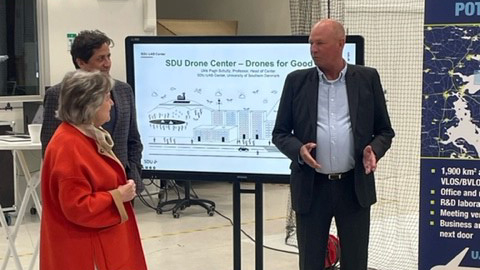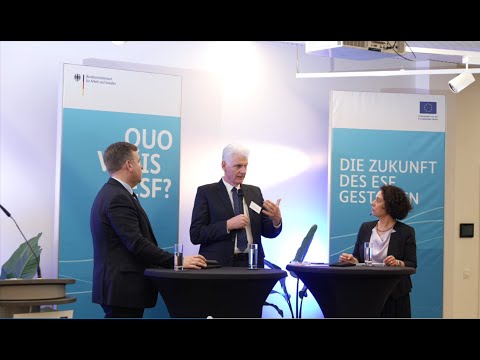
Elisa Ferreira, European Commissioner for Cohesion and Reforms, visited the Regional Lighthouse project on the island of Funen today. The visit marked the launch of the Partnership Agreement with Denmark for implementing EU’s Cohesion Policy funds in the new programming period 2021-2027,
Funen creates, tests and produces cutting-edge digital, robotics and autonomous solutions for land, sea and air applications. Supported through REACT EU funding instruments – both via the European Social Fund (ESF) and the European Regional Development Fund (ERDF) – the Danish project is dedicated to making Denmark a leader in the development of future technologies. By focusing on green investments in equipment, facilities, innovation and skills, the NextGen Robotics consortium aims to ensure Denmark continues to be a centre of global innovation.
EU funds have been critical to Funen’s success. With nearly €15 million from REACT-EU, Funen has been able to invest in test equipment – and break ground on a huge test and development center at the Port of Odense. This work will lay the foundations for automated testing of robots and drones, as well as production of big structures such as building parts, ship parts or wind turbines. The facility will be the first of its kind in the world, and the University of Southern Denmark, which will establish the centre, has described it as the next robot revolution for Denmark and Danish industry.
With its holistic approach in addressing regional needs/challenges and strengths, Funen’s NextGen Robotics represents an excellent example of an operation of strategic importance for the EU Cohesion Funds’ investments for 2021-2027.
Projects such as Funen’s Lighthouse demonstrate how EU funding helps to create a Europe that maintains its competitive edge. Through ESF funding, regional projects and organisations are able to train the next generation of highly-skilled professionals across many disciplines. Skills in programming, advanced mathematics and complex problem solving are essential for future specialists in these fields. ESF funding is therefore vital to ensuring these projects continue to have capacity to build the teams of professionals that will guide Europe through both the digital revolution – and ensure the EU is able to move forward with the implementation of its green agenda.



